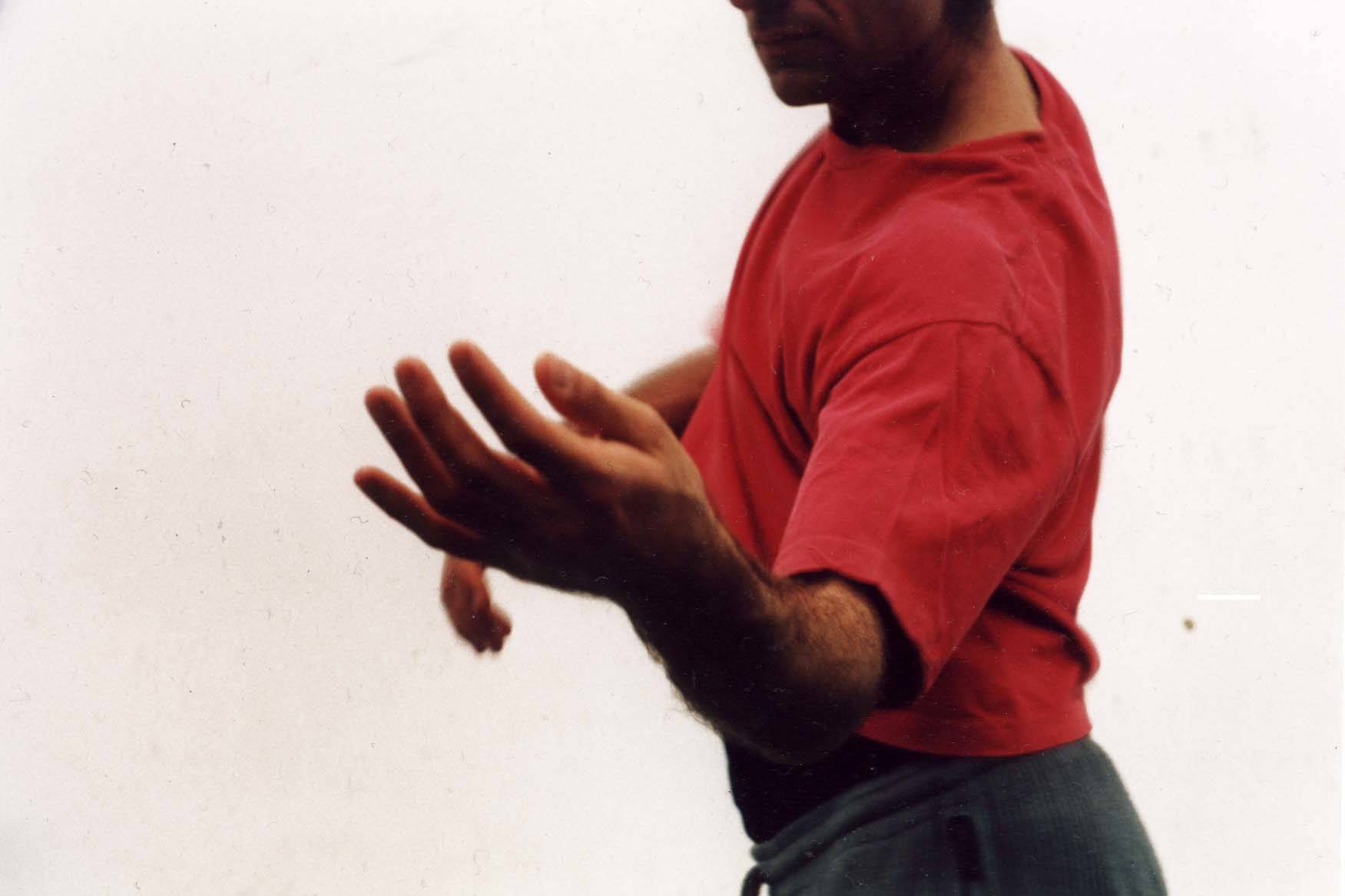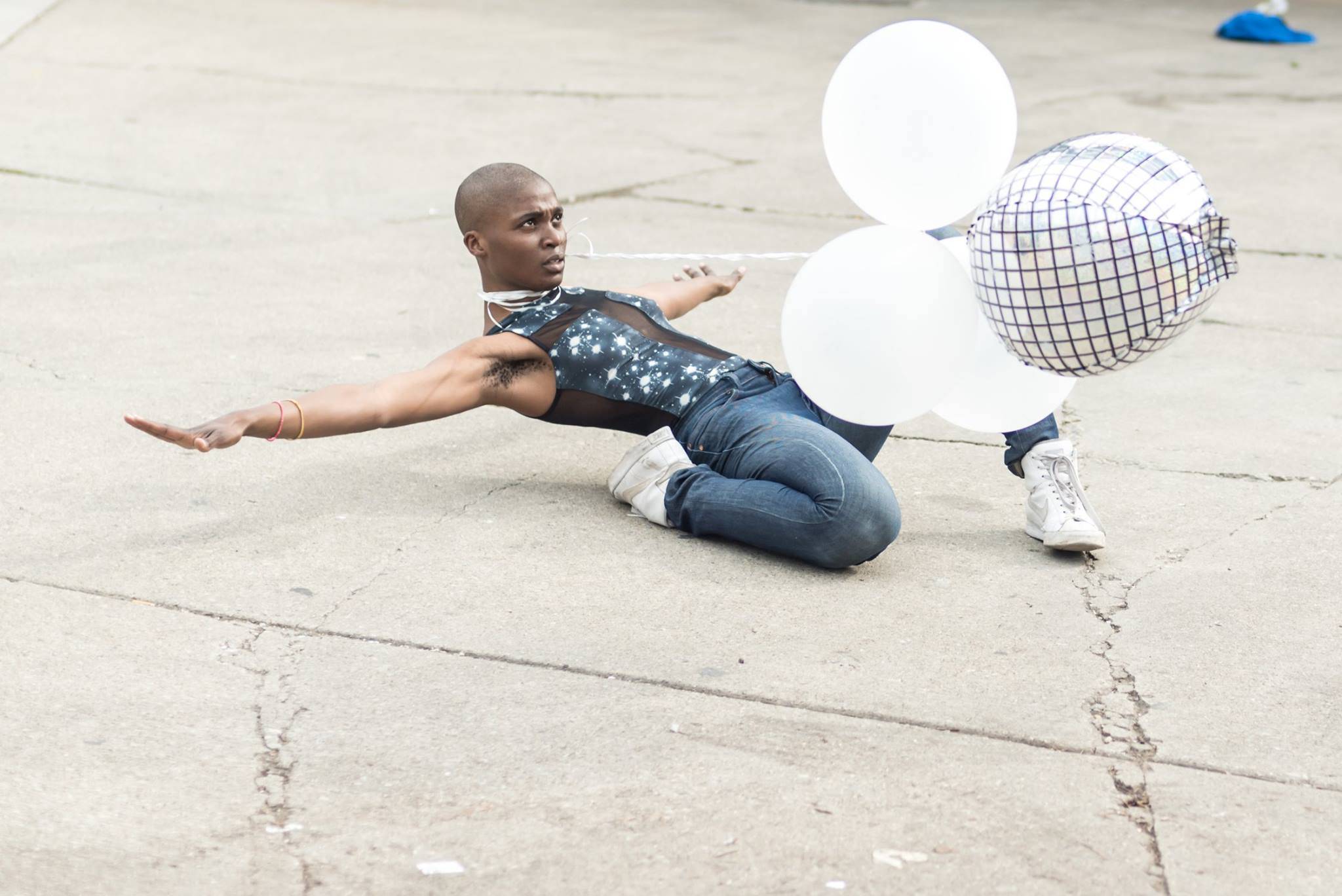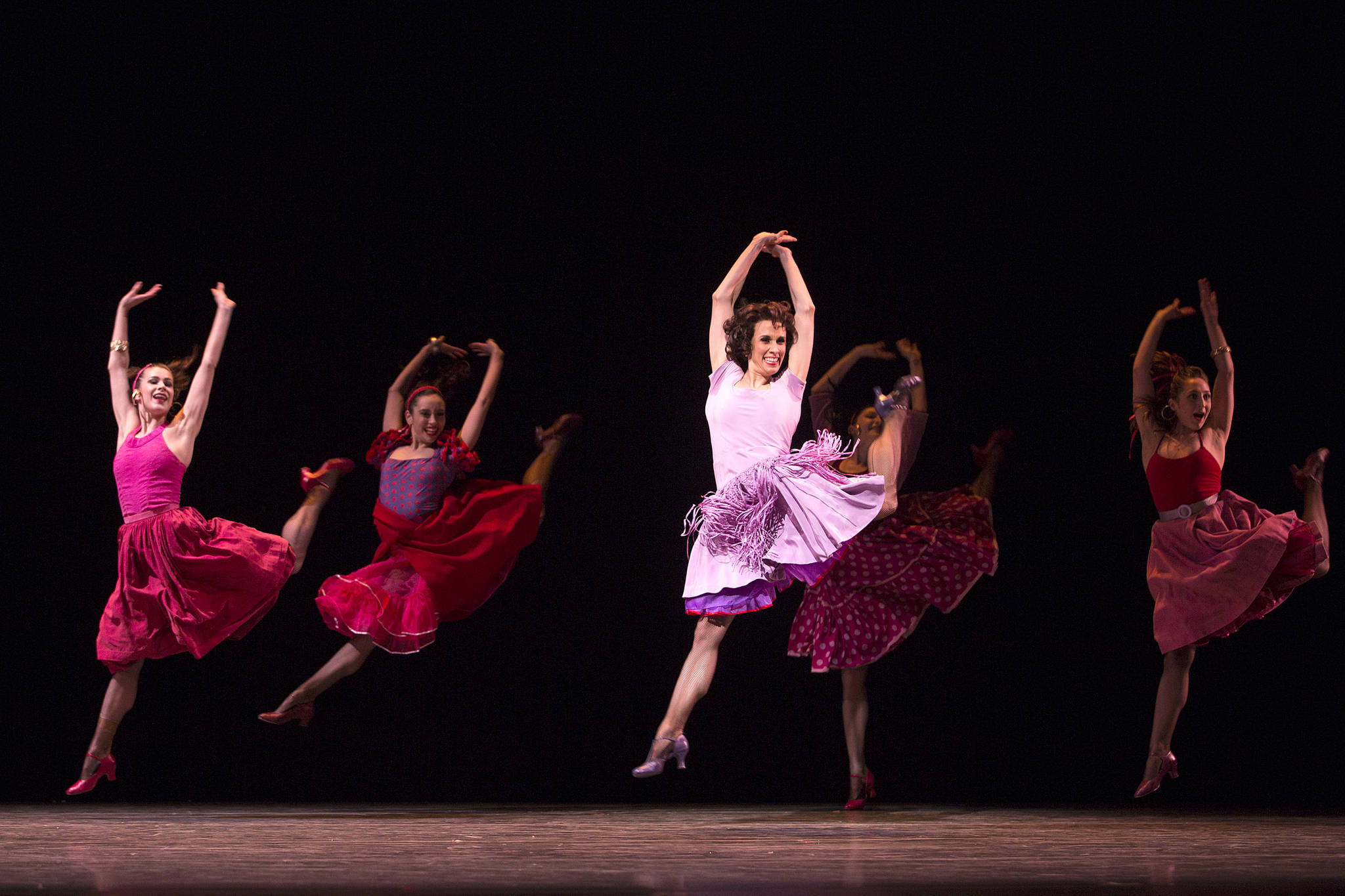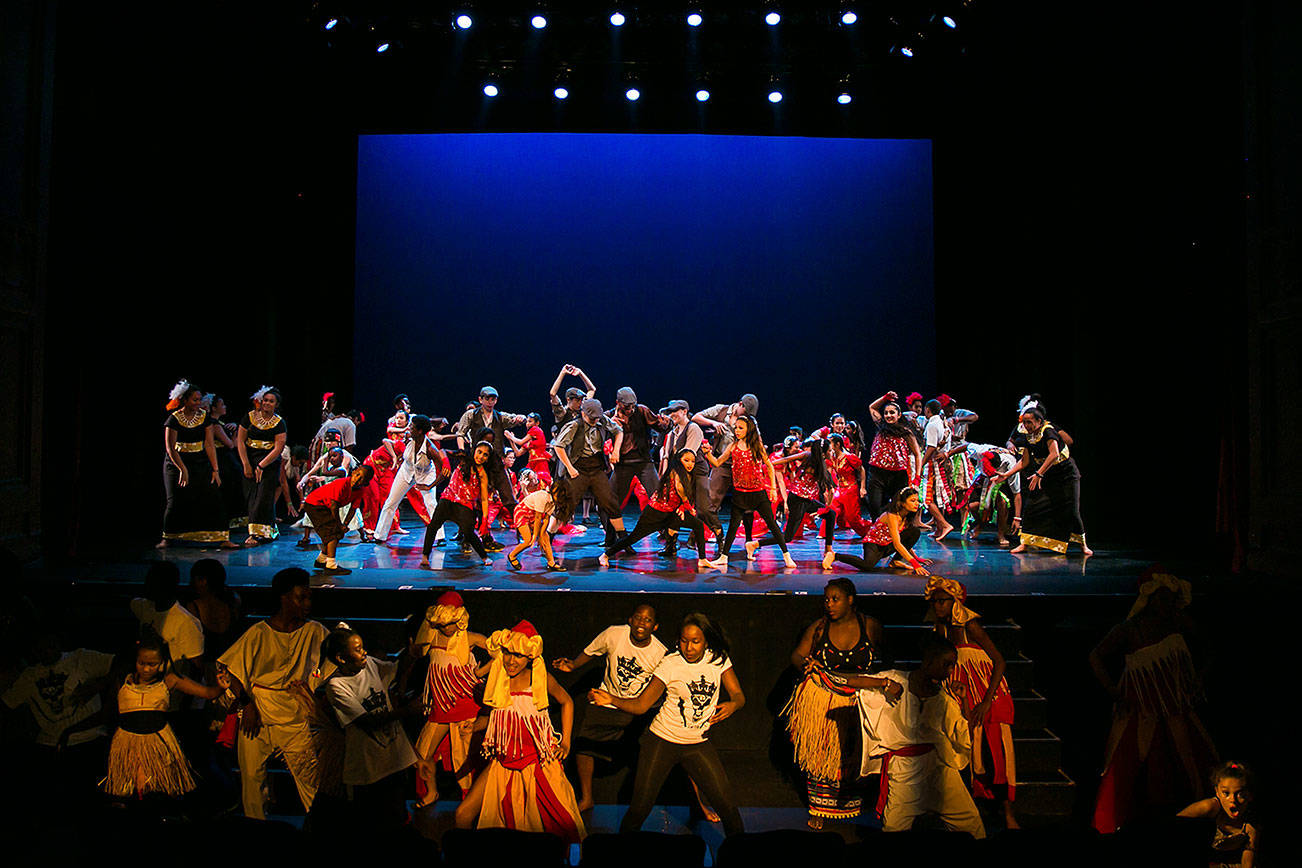SEATTLE IS A FESTIVAL town. From Bumbershoot to Folklife, from Fringe to SIFF, we seem to like our art in big pack ages. So it makes sense that On the Boards’ Northwest New Works Festival is a hot ticket, with five separate programs in three weeks for a total of 16 different groups.
It’s also a hot ticket for the artists involved. Most of the choreographers on the program have spent considerable time and effort in the past producing themselves— arranging the infinite details of theater rental, ticket sales, and promotional mailings—on top of all the “art stuff.” For them, inclusion on the New Works slate is almost a vacation, a chance to concentrate on making dances rather than organizing the event.
Northwest New Works Festival
April 13 -29 at On the Boards
Karn Junkinsmith, whose Rechercher (Investigations) will premiere in the second week of the festival, is particularly grateful for the support. She’s been making work in Seattle for over 10 years, appearing in series and venues that are no longer producing dance: “Allegro [Dance Series] is gone, New City’s not doing dance. People have to make it happen for themselves.”
With a variety of collaborators, including Heather Kravas and Jack Magai, Junkinsmith made a series of witty and eccentric works on topics that ranged from baking (Cake) to mathematics (Pi). Working alone more recently, her choreography feels less whimsical, more disturbing. In Rechercher, she sets a solo figure against a group, exploring the dynamics of oppression. Walking along the perimeter of the stage, the soloist gradually sheds most of her clothes, going from an all-enveloping robe through many layers to her underwear. As she strips dispassionately, she literally becomes smaller, but no less substantial. The group in the middle continually splits and reforms in sets of twos and threes, performing Junkinsmith’s combinations of almost literal gesture and spiky legwork. The sound score by Susie Kozawa includes text from South African feminist Olive Schreiner and references to 1930s board games, as well as a variety of musical sources.
Northwest New Works is both a “laboratory” and one of the biggest gigs in town. It’s perfect for Junkinsmith, a longtime local dance figure who is still fascinated by the process of making dances—watching how one decision affects another like dominoes—and enthusiastic about her colleagues. “It’s not new news, but it’s the truth: It’s really exciting that work is being made, in spite of it all,” she says.
FOR PORTLANDchoreographer Gregg Bielemeier, who performs the third week, the New Works Festival is a chance to see and be seen in a different city. Bielemeier has been instrumental in the development of the Portland dance scene since the 1970s, but he hasn’t made the trip up the freeway very often. “Jacket” is a section from Suited, an evening-length piece he is planning in honor of his upcoming 50th birthday. He set up the project to give himself time to explore his body at this point in his life; he’s frankly “happy I can still be doing all this.” Bielemeier’s dancing is quite suave, almost as if Fred Astaire came back as a modern dancer, barefooted and more substantial. Occasionally his self-possession dissolves into spasms of Daffy Duck hysterics, and he twitches his way across the stage until he regains his composure. The humor undercuts our expectations of “serious modern dance” but doesn’t trivialize his material.
Programming for the rest of this year’s version of the festival is the usual combination of the new and the known. In the first week, both Mik Kuhlman and Maureen Whiting return to OTB. The air gets even thicker in the second and third weeks with two programs each. Week two on the Mainstage, along with Junkinsmith, Rob Kitsos and Ryan Corriston perform their duet Entente, and Haruko Nishimura’s Degenerate Art Ensemble presents a surreal version of a toy factory in Razor Stitch. In the Studio Theater, Portland dancer and choreographer Randee Paufve creates incredibly specific and baroque gestural phrases, Laura Curry explores the intersection between modern dance and classical singing, and Margit Galanter and Margo Ende examine what constitutes “normalcy” in Pharmacokinetics. In week three, Peggy Piacenza and the Crispin Spaeth Dance Group are two-thirds of the Mainstage program, while Bielemeier is joined by solo improviser Kristin Hapke in the Studio Theater. Dance in Seattle is indeed heating up in April this year.








